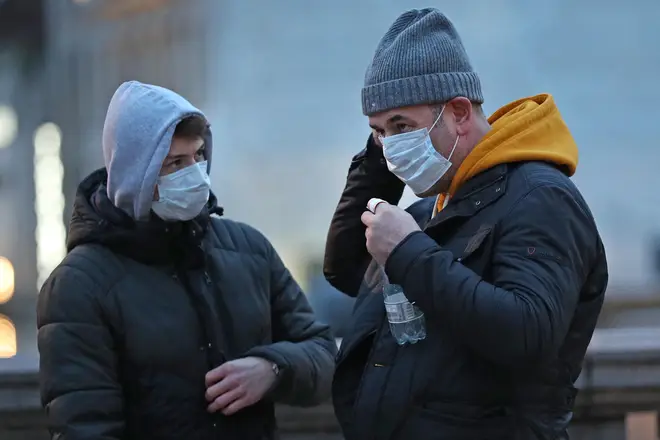
Ian Payne 4am - 7am
6 March 2020, 08:53 | Updated: 7 June 2023, 08:56

LBC has learned that Public Health England is failing to contact people who may have been exposed to Coronavirus.
A mother has told LBC that she has had no contact from PHE almost a week after her son was treated by a dentist who was infected with coronavirus.
On Sunday, a dentist in Finchley in North London was diagnosed with COVID-19. He is thought to have caught it in Milan and he self isolated immediately. But not before he had spent at least one day treating patients at his surgery on Friday.
LBC spoke to the mother of one patient who was seen by the dentist on Friday, but who says neither she nor her son have heard anything from Public Health England and it's now nearly a week later. She says she's spoken to one other patient in the same boat.
Her adult son was staying with her and she's now very worried for her family and her husband who has an illness that might put him at risk.
PHEs guidance for responding to confirmed cases states "If a person tests positive we speak to the patient to identify anyone who has had close contact with them during the time they are considered to be infectious and go all out to find these people as soon as possible."
The key is "during the time they are considered to be infectious". PHE currently don't consider somebody infectious before they have symptoms, although there is still some scientific debate about whether this is the case. The World Health Organisation confirmed only yesterday that people can be infectious without displaying symptoms. Symptoms can also be mild, and so people don't notice they have the virus whilst they are infectious.
As the dentist was not displaying symptoms, PHE say they have not contacted the people who were treated by him on Friday as they are not thought to be at risk.
READ MORE: Doctor reveals precautions she is taking over coronavirus
But these people are still very nervous, and getting confused messages. Professor John Ashton, a former regional director of Public Health England, said: "It's not good enough.
"The technical side at a national level is second to none. But the communication is really poor and I've been getting this from everybody, from journalists who have contacted me because they can't get anybody else to talk to them to people who have phoned 111 and have rung off after an hour and a half.
"It's not good enough. We need to be better.
In a statement, Public Health England said they are "contacting people who had close contact with one of the latest confirmed cases of COVID-19. Close contacts will be given health advice about symptoms and emergency contact details to use if they become unwell in the 14 days after contact with the confirmed case."
It's not however clear that close contacts have been given that information in this case.
They continue: "There is currently no information to suggest that there is an increased health risk to any patients or other members of staff and no recommendation for them to self-isolate. The staff member was not symptomatic whilst attending the practice, and no additional special measures are recommended."
Now that will be reassuring to patients of the practice, which I understand is closed for a precautionary deep clean.
But even if there's no danger to staff and patients generally, it is not unreasonable to expect anyone who was directly examined by the infected dentist to have heard something by now.